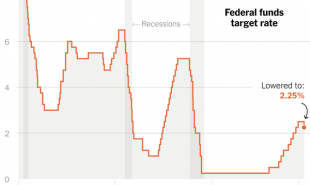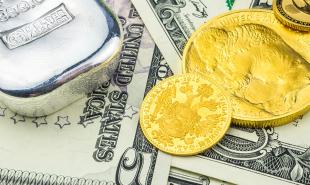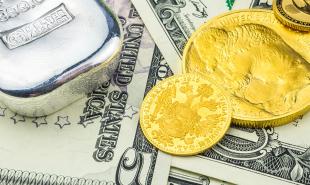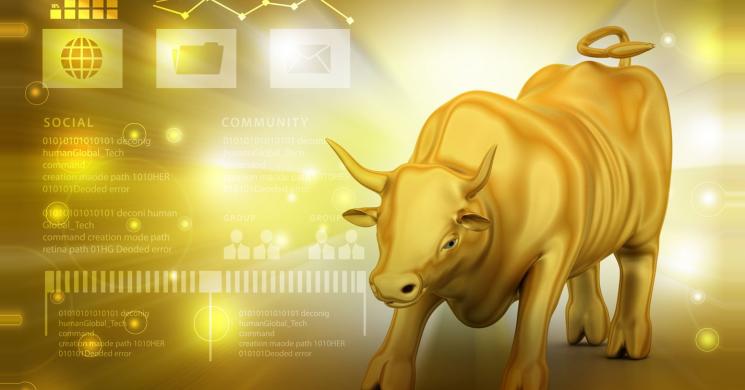
Summary by Vince Lanci
for the Soren K. Group
- All money is Fiat including Bitcoin
- Bitcoin is poised to replace paper Fiat
- Gold represents the ideal in ‘moneyness’ over all others but is a poor currency compared with fiat
- How does BTC compare with Gold in terms of money qualities
We strongly recommend reading this thoughtful piece as Doug, whether you agree or do not, has answered some questions for himself about Bitcoin and in doing so refined our own opinions as well as laid out what questions we should be asking next
Our questions going in, with his implied responses:
- Is Bitcoin currency?- yes, and it competes with paper FIAT now.
- Is BTC money?- not fully, but it or its successor will be
- What is BTC competing with? - All paper Fiat currencies. If it achieves price stability the sucking sound you hear will be all government issues fiat shrinking in use.
- Where Does Gold fit in?- Gold is the measuring stick by which all potential monies are measured.
- How does Bitcoin compare to Gold as money?- Doug compares them using 5 criteria of money going back to Aristotle’s definition.
- Does BTC replace Gold? - the answer is No. BTC replaces paper fiat which succeeded gold by decree. But it does take us even further from hard money. Which if you trust paper fiat as we all do in daily use may as well be gold. But it also makes economies more vulnerable to systemic risks. How it could effect fractional reserve banking alone is an unknown in either direction .
Bitcoin acceptance will take the public’s trust in fiat a step further from the safety of the tangible, as all are valued by opinion.. but BTC is even less “real” than paper money and susceptible to new intangible risks like that gold could never be.
The trade for us is: if you are buying and holding a Crypto long term, you are shorting fiat.You are betting on paper fiat’s evolutionary successor. So the more money you have in BTC, the more you should have in gold or some stable store of value. Bonds and real estate fall into this category depending on yourdefinition of safety. This is a hedge against: volatility, BTC successor risk due to its lack of protective moat (i.e.tech never rests) , and systemic risk. You are betting on a massive global transition in how business is transacted.
There will be bumps, even if you are right.
And the particular crypto you may be holding is just tech. If a next generation coin comes along with better security, privacy, scalability etc before your coin gains the protective incumbency that comes with broad acceptance; then you are in trouble.
Tech is always changing. This is the first innovation in a new area that uses open distributed ledger accounting to solve the problem of “double pay” which is a risk in current e-pay banking. It cannot becthe last, right?
The next generation may create an all or nothing scenario im cryptos as everyone drops their Nokia phones for blackberries and then IPhones. Remember Palm, Netscape, Jeeves, blackberry? You won’t see the next innovation coming and if one does, it might not improve on existing cryptos, it might replace the current tech altogether. In which case, Ether will not be a hedge for Bitcoin.
There are 3 acceptable, hedge-able risks we see so far in holding Crypto:
1- Volatility- which should not be a risk if you are long term and so not need the money you put into it.
2- Lack of Protective Moat- which is vulnerable to new products improving on the current ones. Broad acceptance and incumbency will decrease this risk. Note here that a new way of implementing the concepts desired doesn’t just hurt BTC, but the whole Blockchain based industry. It is not unreasonable to think that large Banks, Texh forms, and governments are seeking ways to co-opt if not create their own solutions to the problem Blockchain addresses.
3- Systemic / Degulatory Risk- same as paper fiat with new risks. Dependence on electronics is the obvious. Less obvious is the government making your particular crypto a pariah.
After all cryptos are privately issued fiat.Tech firms, Bankers, online retail, and governments are all working separately and together to co-opt, usurp, crush, or create their own product to control the medium of exchange. And conversely fragmentation from a lack of crypto standard (VHS/ Betamax) are all systemic risks.
Nice Tech Gordo!
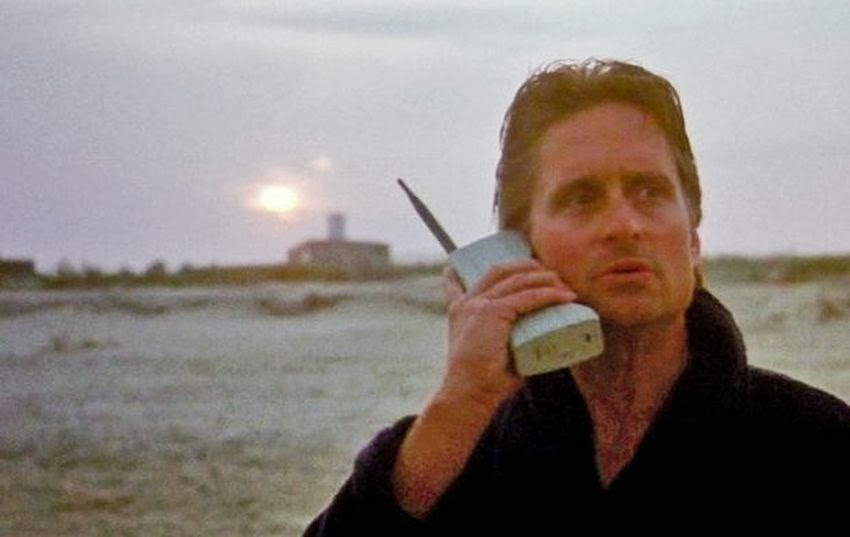
Doug Casey: How I Learned To Love Bitcoin - Part 1
Bitcoin is becoming more and more accepted as a medium of exchange, while most government fiat currencies approach their intrinsic values—essentially zero.
Bitcoin is up 495% this year. Ethereum, another major cryptocurrency, is up 3,507% since the start of the year. Smaller cryptos have soared more than 10,000%.
When you see gains like that, it’s natural to think that you missed out. I even felt this way for the longest time…that is, until I talked to Doug Casey.
You see, a few weeks ago, I called Doug to see what he thinks about cryptos. He told me why Bitcoin is money. He told me why the crypto market’s about to get a lot bigger. He even told me why Bitcoin could soon hit $50,000… That’s eight times higher than where it trades today.
After that conversation, I became convinced that cryptos are the real deal. I even just bought some Bitcoin myself.
Of course, I realize that not everyone’s got a legendary speculator on speed dial. So over the next two days, I’m sharing a brand-new essay from Doug. In it, he explains why the crypto boom has a long way to go.
By Doug Casey, founder, Casey Research
In this article, I’d like to explain how I learned to love Bitcoin. Why it’s a wonderful thing. Its potential as a speculation. How the government is going to co-opt it. And how this is all likely to end.
I was first introduced to Bitcoin several years ago in Cafayate, Argentina. A young Belgian guy came to visit, I bought him lunch, and we discussed Bitcoin. He was a very early enthusiast. He gave me a physical Bitcoin as a souvenir. They’re now collectibles, but the digital codes are inscribed on them. I still have that Bitcoin. It was worth $13 at the time.
crypto prices today:
I wish I had listened to his argument more carefully, because I could have made millions. Over 300-1 over just a few years… that’s rare indeed. I was inclined towards it philosophically, but outsmarted myself on an investment level. Because Bitcoin was pitched to me as an alternative currency, and I failed to see all of its advantages in that role.
My original objection was that Bitcoin isn’t backed by anything. It’s really a private fiat currency. It’s very much like the Zambian Kwacha, the Argentine peso, the US dollar, or any of the other 150-plus currencies in today’s world. It’s a floating abstraction. Unlike state currencies, though, its acceptance isn’t enforced by laws. But, on the other hand, its quantity is limited. But would that be enough to get large amounts of people to use it as a currency?
I missed something when I said, back then, that it had no value. It’s a fiat currency, yes, but it has much more practical value than any other.
A currency has to be a good medium of exchange, and a store of value. Even a few years ago, both of those things were wild speculations when it came to Bitcoin. I tried to analyze the situation rationally, using Aristotle’s five characteristics of a good money.
Aristotle defined the five characteristics of good money in the 4th century BC. And his analysis is as accurate now as it was then. It must be durable, divisible, convenient, consistent, and have use value in and of itself. Based on that, Aristotle believed gold and silver were best suited for use as money. Let’s analyze how Bitcoin does by these five criteria.
Durable. Bitcoin and other cryptocurrencies are definitely durable—unless we have a major electromagnetic pulse (EMP) or a significant solar flare that wipes out all the computers. Bitcoins are not as durable as the metals, but they’re adequate, barring a collapse of civilization.
Divisible. Bitcoin is infinitely divisible. Better than the physical metals, actually—although the metals can be accounted in tiny fractions too.
Convenient. Yes—as long as you have a smartphone, Bitcoin is very convenient. But your smartphone, or something like it, may not always be with you. And your counterparty also has to have one. And it’s not very convenient if someone doesn’t know or trust Bitcoin. Right now, that’s still probably 98% of humanity.
Consistent. Absolutely. Every Bitcoin is exactly like another one. It’s at least as good as .999 fine gold that way.
The problem I had with Bitcoin was the fifth point: Does it have use value in itself, so you can’t get stuck holding the bag?
If you have a million US paper dollars, and nobody accepts them, they have no use in and of themselves—except as wall decorations or kindling. They’re just unsecured liabilities of a bankrupt government. In essence like a million Zimbabwe dollars, although there’s obviously a continuum. Fiat currencies can be easily destroyed by their issuers. The things are burning matches. They have half-lives, like radioactive elements.
Sure, there were advantages to Bitcoin being a privately issued fiat currency. But I didn’t see its real use value; that’s where I went wrong.
Bitcoin is certainly a fiat currency like the dollar or the Kwacha. But it’s also an excellent transfer device. You can move wealth from one country to another, or to another person, quickly and privately. I’d say secretly, but you’re not supposed to say “secret” anymore, you can only say “private.” Part of the politically correct corruption of language, I might add.
And you can do so outside of the banking system, which is increasingly important. If you use Bitcoin, you don’t need a bank to store your money.
Cryptocurrencies, like Bitcoins, are just the first, and most obvious, application of blockchain technology. Hopefully, among other things, blockchain and Bitcoin are going to destroy the SWIFT system, the vehicle for wiring money from one bank to another. SWIFT is expensive (at least $50-100 per transaction), slow (generally a day or two, sometimes a week or more), and insecure (who trusts either big banks or the US Government?). And SWIFT requires that all dollars clear through New York; non-Americans don’t care for that. SWIFT is used by thousands of banks around the world to send payment instructions worth trillions of dollars each day. Incidentally, it's not that I'm against SWIFT itself. It's just that it's become a creature of the banks—who abuse it and are actually responsible for its problems.
So, this is one big use value of Bitcoin. It allows you to transfer something that is accepted as money outside of the banking system, and outside of government fiat currencies.
Bitcoin is well on the way to being accepted as money. I think it will succeed.
What is money? Money is a medium of exchange and a store of value. Almost anything can be used as money. Some things are just much better than others.
Salt, seashells, and cows have all historically been used as money. After all, the word pecuniary comes from the Latin pecus, which means cow. And salary comes from the Latin sal, which is salt. Wampum were seashells. Cigarettes are money in prisons and war zones. Even giant Yap island discs have been used as money.
Bitcoin is becoming more and more accepted as a medium of exchange, while most government fiat currencies approach their intrinsic values—essentially zero.
Bitcoin is a bit more problematic as a store of value. Once again, let’s get back to the basics. You’ve got two kinds of currencies: commodity currencies and fiat currencies.
The commodity currencies are actual physical commodities. You know they have use value. Fiat currencies, on the other hand, are just made up. They’re totally arbitrary and political.
It’s like that old joke about sardines. You’ve got eating sardines and trading sardines. Commodity currencies are eating sardines. Fiat currencies are trading sardines. Of course, there’s no guarantee that Bitcoin is going to be accepted a year or two from now. It’s a high tech innovation, and maybe a Version 2.0 will collapse the value of the current version. So in a few years, we may find that Bitcoin fails the store of value test. But it’s accepted at the moment. And it’s been growing in value at a crazy rate—unlike fiat currencies, which have all been falling against real goods and services at about 5-10% a year. Incidentally, I don’t put much faith in the accuracy of government inflation figures.
Bitcoin has been a great speculation so far. But as a store of value? Bitcoin is a technological innovation. There likely will be Bitcoin 2.0 and 3.0, not to mention other, even more advanced cryptos. What will the current Bitcoin then be worth? There’s a reason the expression “High tech, big wreck” is true. Just because so far it’s been a great speculation, doesn’t mean it’s a good store of value. Technology, a solar flare, or even government action could wipe it out.
The bottom line? Bitcoin passes the medium of exchange test for the moment and store of value test for the moment. So you can definitely say it’s money—for the moment. But so does the Argentine peso, for the moment. I have little confidence, however, Bitcoin will be here, say, five years from now. Buying cryptos is not like socking away gold coins.
The $64 question is: Where are we in the market cycle for cryptos? Clearly, we’re no longer early in the game. It’s like getting into the Internet stocks back in 1998—they weren’t cheap, but the bubble got much, much bigger. And the Internet—contrary to what people like Paul Krugman thought—was not itself a bubble. Up till now, the only way to play this has been the coins, the tokens, like Bitcoin. There are perhaps a thousand of them out there now, and most of them are garbage.
Because I think the bubble will get much bigger, I’m getting involved in these cryptocurrencies on several levels.Including public mining companies, which is not germane to this article. I’m trying to make the trend my friend. But cautiously, because there’s a lot of speculation going on.
I am concerned about the market, which is very bubbly. But I think it’s going much higher, for several reasons. One, as we discussed, is that some of the cryptos have great utility, and only about 25 million out of the 7 billion people in the world currently own them. I promise you that five years from now that number will be more like three billion. They’re going to get much bigger in the developed world, but even bigger in the Third World.
Read more by Soren K.Group


